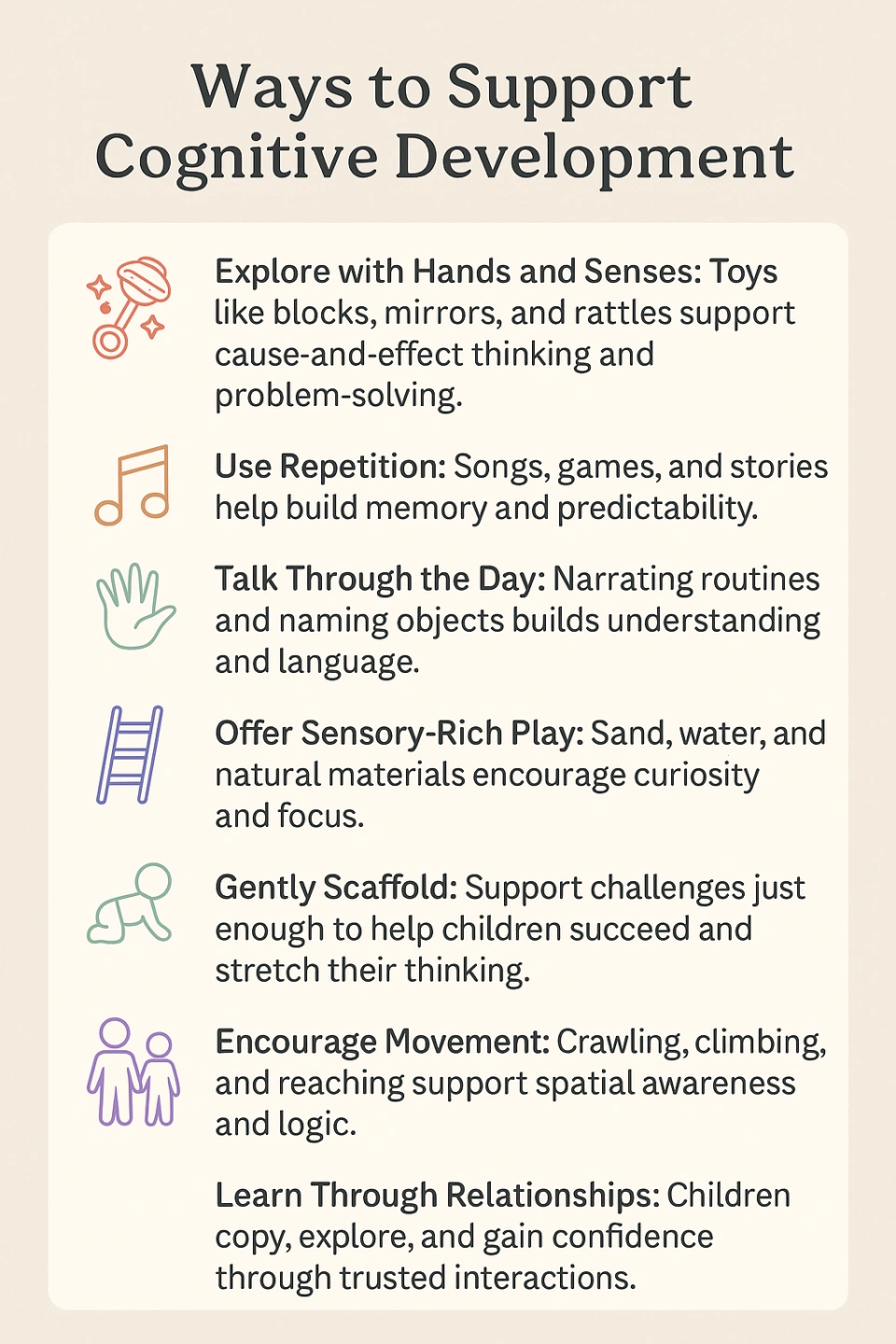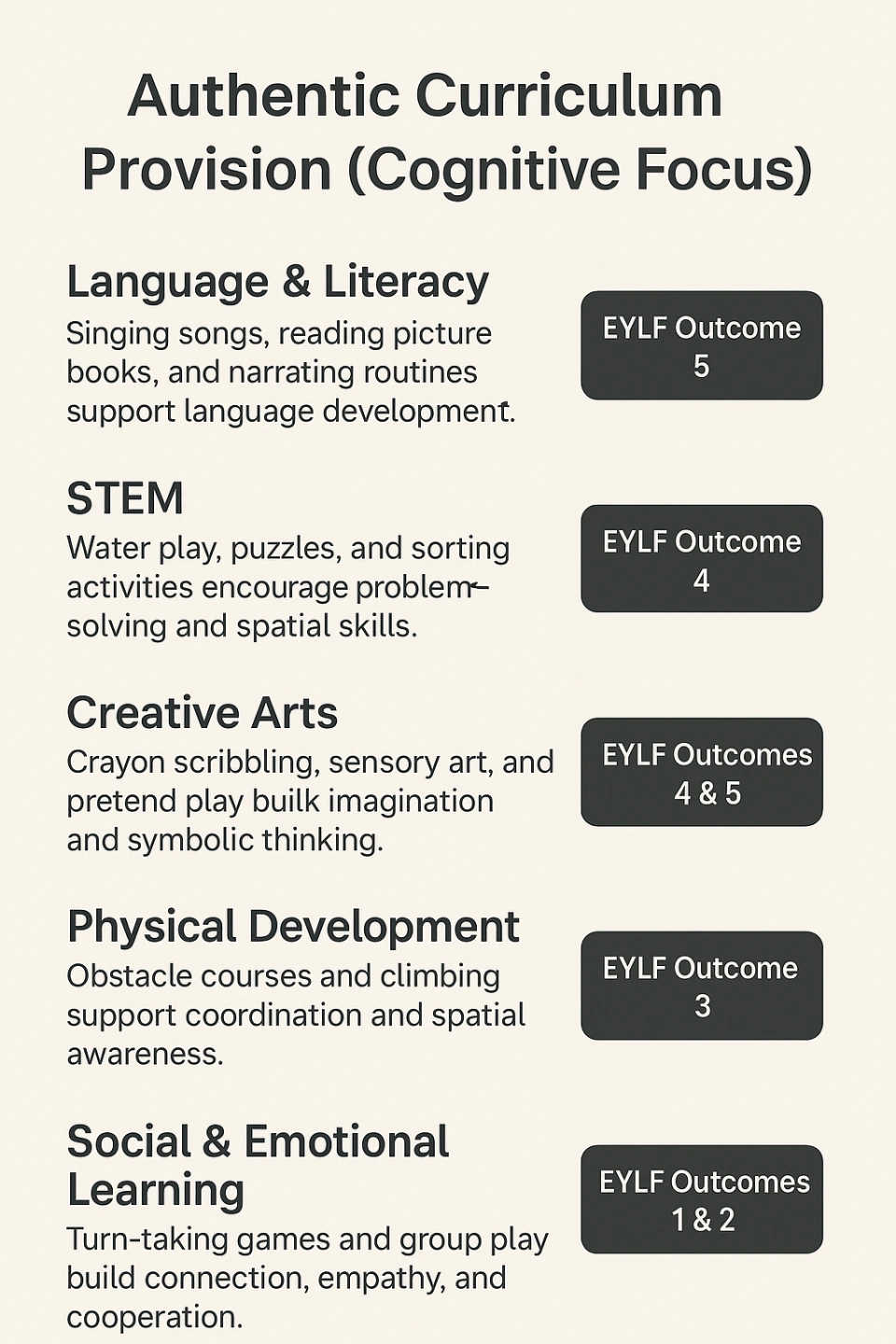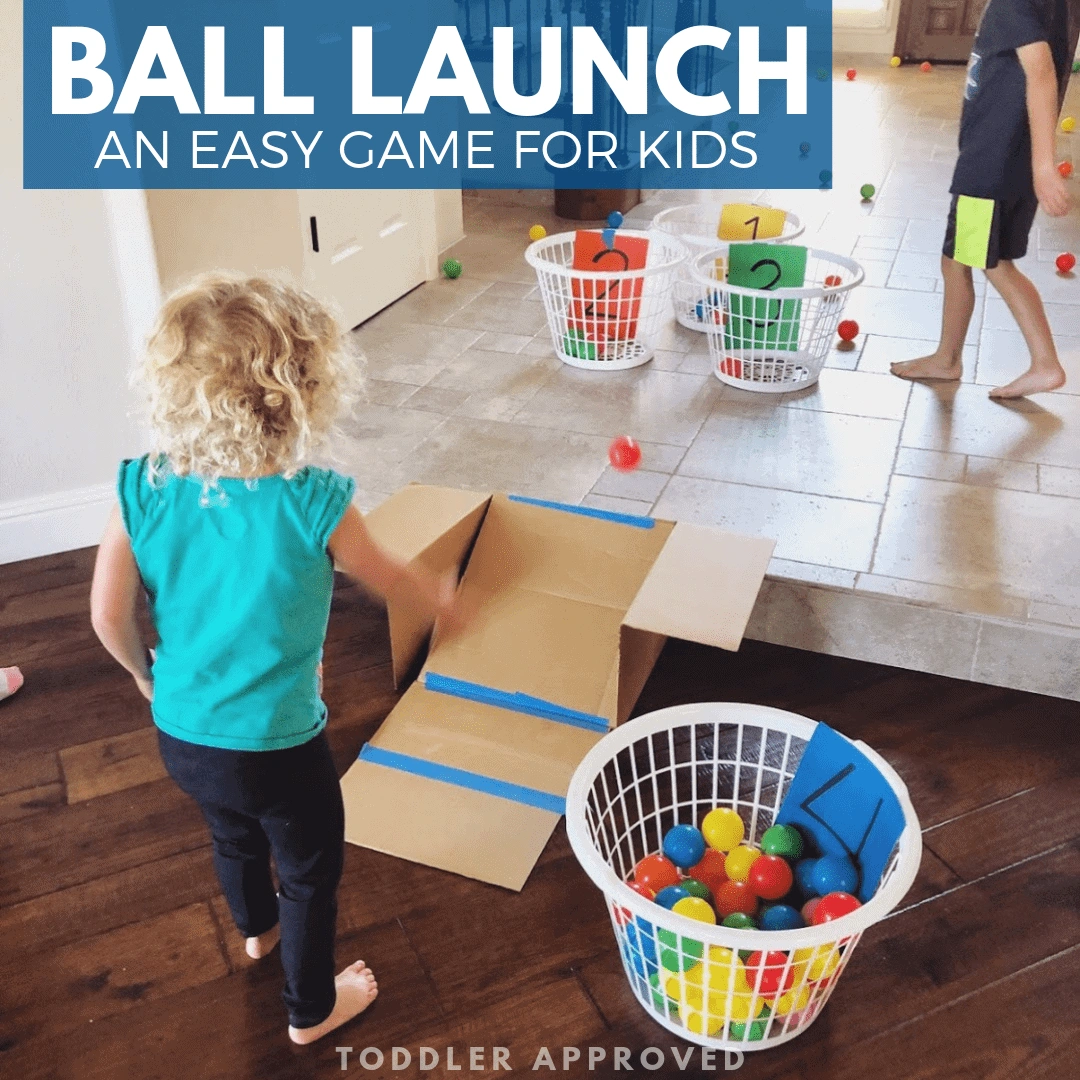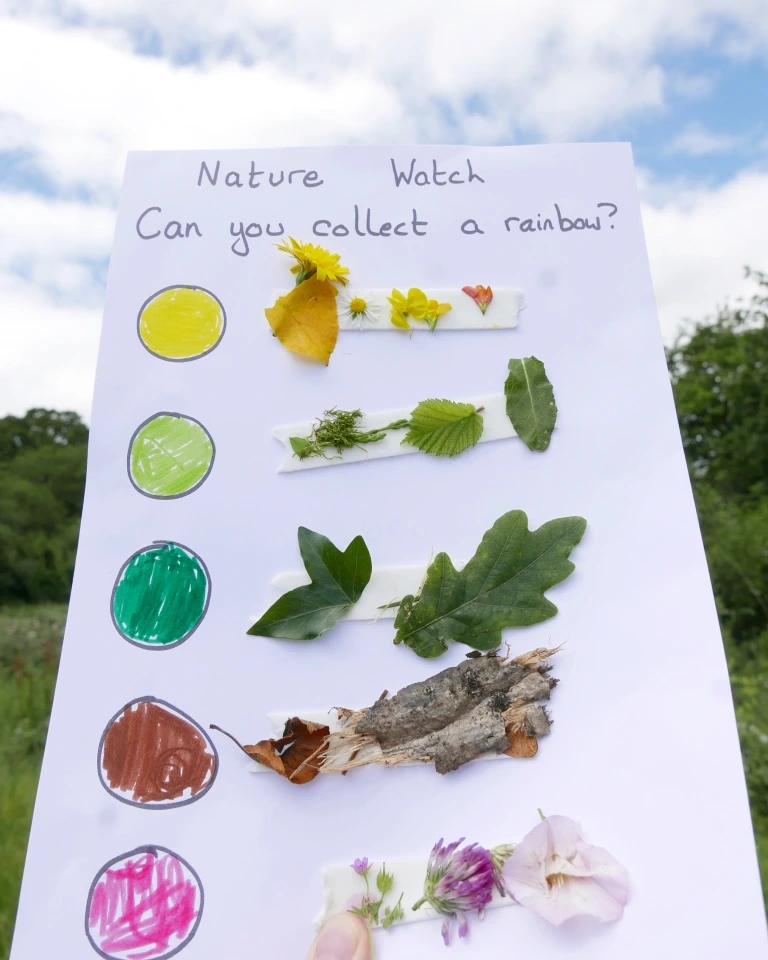
Supporting Cognitive Development in Infants and Toddlers
Cognitive development is how babies and toddlers learn to think, explore, and make sense of the world. In the early years, learning happens through play, movement, relationships, repetition, and sensory experiences. Educators support this by creating responsive, engaging environments that build foundational thinking skills.
How Young Children Learn
Infants and toddlers are natural explorers. They learn by using their senses, moving their bodies, and interacting with people and objects around them. At this stage, cognitive growth is about discovering patterns, solving problems, and making everyday connections, not formal instruction.
How Educators Can Support Cognitive Growth

Photo
Theories Connection

Jean Piaget Theory
Jean Piaget described early learning as part of the sensorimotor stage, where children use their senses and actions to construct knowledge and understand their environment.

Lev Vygotsky Theory
Lev Vygotsky emphasized that children learn best with support from others—especially in what he called the Zone of Proximal Development (ZPD), where gentle guidance can extend their learning.

Curriculum Provision
Learning Opportunities

For Infants (0–12 months)
Activity: Peekaboo Surprise Baskets
Goal: Support object permanence and cause-and-effect thinking
How: Hide safe, soft toys under fabric flaps or lids. Let infants uncover and discover them. Repeat with small changes.
Cognitive Focus: Object permanence, attention, prediction
EYLF Outcome 4: Children are confident and involved learners

For Toddlers (12–24 months)
Activity: Rolling Ball Ramps
Goal: Encourage problem-solving and early physics exploration
How: Create ramps using cardboard or wooden boards. Let toddlers roll balls, change ramp angles, and compare outcomes.
Cognitive Focus: Cause-and-effect, prediction, trial and error
EYLF Outcome 4

Older Toddlers (2–3 years)
Activity: Match and Find Nature Hunt
Goal: Build categorization, memory, and symbolic thinking
How: Provide cards with images of natural items (leaf, rock, stick). Invite children to match real items outdoors to the cards.
Cognitive Focus: Matching, categorization, memory
EYLF Outcome 4 & 2: Learning through connection with the natural world
Activities Collection
“Old MacDonald Had a Farm” supports cognitive development by helping young children build memory, make predictions, and connect animal names with their sounds. The repetitive structure encourages attention and r
“Days of the Week” song supports cognitive development by helping toddlers learn sequencing, memory, and time concepts. Through repetition and rhythm, children begin to recognize patterns and understand the order of days, building foundational thinking and early literacy skills in a fun, engaging way.
“Simon Says” is great for helping little kids think, listen, and focus. It teaches them to follow directions, wait their turn, and use their memory while having fun and moving around.
Polar Bear, Polar Bear, what do you see? Book
Where Is the Green Sheep? By Mem Fox and Judy Horacek supports cognitive development by helping children build memory, attention, and early problem-solving. Its repetition, opposites, and playful search encourage prediction and categorization in a fun, engaging way.
“Tiny Tim the Turtle” supports memory, sequencing, and prediction through its fun, repetitive rhyme, helping toddlers think, follow along, and learn through play.